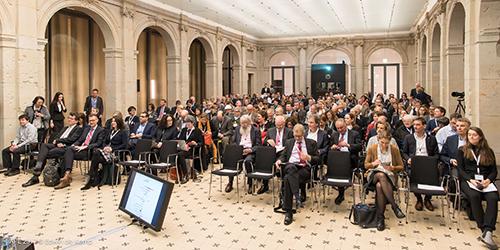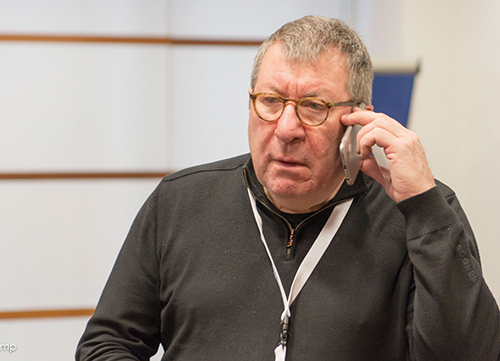Ramping up relevance in Berlin

The city of Berlin will once again play host to the APE conference in January, with the tagline: Publishing 2020: Ramping up Relevance.
The APE conferences are aimed at providing a better understanding of scholarly communication and the role of information in science, education and society. They encourage the debate about the future of value-added scientific publishing, information dissemination and access to scientific results, and offer an independent forum for ‘open minds’.
Participants in the conference on 16 and 17 January at the Berlin Academy of Sciences include: academic, educational, scientific, technological, medical, legal and professional publishers; university presses; researchers; authors; editors; librarians; teachers; learned and professional societies and associations; funding agencies; politicians and policy makers; subscription agencies and booksellers; recruiting agencies and technology providers.
Keynote speakers include:
- Sabine Kunst, president, Humboldt Universität zu Berlin;
- David Sweeney, director of research and knowledge exchange at HEFCE, and executive chair designate of Research England;
- Johannes Vogel, chairman of the EU Open Science Policy Platform (OSPP) and director general of the Museum of Natural History, Berlin;
- Jean-Claude Burgelman, head of the Open Data Policy and Science Cloud unit at the European Commission;
- Annie Callanan, CEO, Academic Publishing Division, Taylor & Francis Group;
- David Nicholas, director, CIBER Research; and
- Caroline Edwards, Modern and Contemporary Literature, Birkbeck, University of London.
Organiser Arnoud de Kemp said: ‘In 2020 everything should be open. But what comes after Open Access, Open Peer Review, Open Science? Will there still be publishers and libraries? We say “yes”.

"Should publishers invest more to prove their value in scholarly communication" – Arnoud de Kemp
‘Now it is time to show the relevant work that publishers and librarians are doing to make this major transition possible and how we will manage information and guarantee quality in the future. But there will be new players as well, and APE 2018 opens the door to present their ideas.
‘There are still many open questions and nobody really can predict how the world of scholarly communication and scientific publishing will look like in the years to come. So there is a lot to talk about and we need to share experiences.’
He added: ‘How will current publishers find their place and remain relevant? Will librarians become the new publishers? Why technology will not get cheaper? With everything being open (open access, open peer review, open science), where are the added values of scientific publishing? Has it become easier to publish articles and get recognition? Do we no longer need metrics?
‘Speakers will examine what this new course might look like and whether it will complement or replace existing routes to scholarly communication. Will it offer new opportunities for publishers and what might they be? Should publishers invest more to prove their value in scholarly communication and how might they do this or is their value better communicated by their actions?’

The Society of Scholarly Publishing (SSP) will organise the programme for a pre-conference event, which will be held at NH Mitte hotel on Leipziger Strasse.
The SSP is a non-profit organisation to advance scholarly publishing and communication, and the professional development of our members through education, collaboration, and networking. SSP members come from a wide range of organisations, both non-profit and commercial, including publishers, librarians, and service providers.
The pre-conference day will explore ‘Ramping Up Relevance’ by looking at how the role of scholarly publishers may be changing given that new stakeholders, public policies, and funding sources are affecting research communication.






